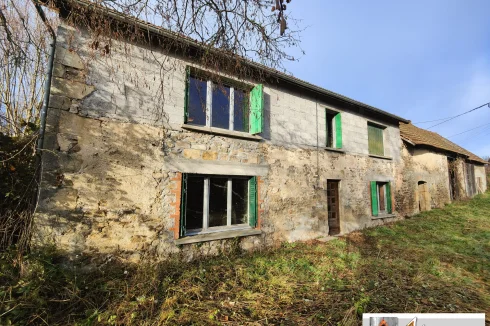Auto-Entrepreneurs To Face Tougher Rules
Thursday 06 June 2013
The government is proposing a reform of the auto-entrepreneur business status, but there remains some uncertainly about the scope of the changes.
As regular readers of the Newsletter will be aware, last year the newly elected French government announced a review was to be carried out of the auto-entrepreneur business status.
The aim of the review was to deal with what François Hollande during the 2012 election campaign declared to be the potential ‘limits’ and ‘excesses’ of the status.
This review, carried out by inter-departmental group of officials, was completed in April and, in a 300 page report, they came to the rather unwelcome conclusion that no major changes were required.
Not to be deterred by reasoned argument, the government has stated that it does not feel bound by the expert evaluation.
They have, therefore, announced that there will be a limitation on the duration for which auto-entrepreneur status can be held, as well as other minor measures.
The Small Business Minister, Sylvia Pinel, has stated that she envisages a maximum period of two years, which she considers long enough “to start and be accompanied”.
Retired persons, students and certain other groups who undertook the business activity on a 'secondary' basis, would be entitled to retain the status for an unlimited duration, although the level of the maximum turnover they could exercise under the status would be reduced.
At the end of two years, auto-entrepreneurs who ran the business as their principal activity would be required to transfer to one of the other tax regimes, such as micro-entreprise or the régime réel.
However, within days of the Minister making the statement, the Prime Minister Jean-Marc Ayrault declared that the two year restriction would only apply to the construction sector, because of competition "that may be unacceptable".
"The construction sector requires a lot of skills, expertise, and the need to respect a number of rules: safety, the environment, and regulations. So what is proposed is that when an auto-entrepreneur in the construction sector becomes established, after two years, if the business is viable, he joins the main business status..... For the others there is no need to worry", said Jean-Marc Ayrault.Later, however, his office clarified his position by stating that the Prime Minister was only using the construction sector as an example, where the problem was "particularly acute".
Sylvie Pintel also interjected further, stating that "other sectors than construction would be concerned, notabaly other artisans, where there is a requirement for a qualification, an obligation of insurance, and an issue of health or safety".
So for the time being, the precise boundaries of this reform remain unclear.
One of the greatest concerns of the government appears to be that 90% of auto-entrepreneurs earn less than the minimum wage, and that half declare no turnover at all. However, it is unclear just how a limitation on the duration of auto-entrepreneur status is going to make any difference to the growth of the businesses.
In the end, therefore, many commentators have drawn the conclusion that the proposed restriction on duration is simply a response to vociferous lobbying pressure by the building trades associations, who accuse the auto-entrepreneurs of 'unfair competition'.
Their claims are based on what they consider to be more generous treatment on social security obligations, easier entry requirements into professions and the potential for fraud.
This is despite the fact that the social security obligations of auto-entrepreneurs were substantially increased in 2013, that they are subject to the same entry requirements as all other business statutes (including a requirement for artisans to register with the Chambre de Métiers et de l'Artisanat), and that the introduction of the auto-entrepreneurs regime appears to have actually reduced undeclared earnings.
The inter-departmental review considered that such differences that existed between the classic business regimes and auto-entrepreneurs were ‘residual’ and could be dealt with by some minor adjustments.
Many of these proposed changes are administrative in nature, although others have greater significance, and may well include:
- Loss of the three year start up exemption on business rates, the Cotisation Foncière des Entreprises - CFE;
- Some tightening of rules on professional insurance, notably on the 10 year building guarantee;
- Reinforcement of controls on checking of qualifications and experience in regulated trades, eg building.
The irony of any tightening of procedures on insurance and qualifications is that they will need to apply in equal measure to anyone setting up in business whatever tax status they use, and there is widespread evidence that many who operate under the classical business regimes do not comply with these requirements.
Sylvia Pinel, the Minister, envisages presentation of the proposals later this month, with planned introduction of the new regulations in the autumn.
Next Article: Are the Carpets Included?
Thank you for showing an interest in our News section.
Our News section is no longer being published although our catalogue of articles remains in place.
If you found our News useful, please have a look at France Insider, our subscription based News service with in-depth analysis, or our authoritative Guides to France.
If you require advice and assistance with the purchase of French property and moving to France, then take a look at the France Insider Property Clinic.





